Friedlingstein P, O’Sullivan M, Jones MW, et al.. "Global Carbon Budget 2024". Earth System Science Data. November 13, 2024. https://essd.copernicus.org/... (Contributed by Gregory Autin).
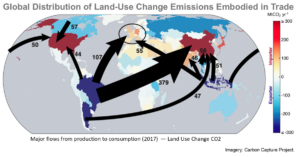 The latest Global Carbon Budget 2024 report, published in the journal Earth System Science Data, shows that global CO2 emissions from fossil fuels will reach a record level in 2024. Caused by fossil fuels from combustion engines of all kinds and agriculture, the global carbon budget increased by 0.8 percent compared to last year. This is only partially offset by the absorption of greenhouse gases by natural carbon sinks such as oceans and forests. The higher the temperatures, the less the natural carbon sinks can absorb, which is particularly evident in the case of forests where reforestation is far from sufficient to compensate for deforestation. There is nothing to suggest that the global carbon cycle peak caused by anthropogenic activities has already been reached.
The latest Global Carbon Budget 2024 report, published in the journal Earth System Science Data, shows that global CO2 emissions from fossil fuels will reach a record level in 2024. Caused by fossil fuels from combustion engines of all kinds and agriculture, the global carbon budget increased by 0.8 percent compared to last year. This is only partially offset by the absorption of greenhouse gases by natural carbon sinks such as oceans and forests. The higher the temperatures, the less the natural carbon sinks can absorb, which is particularly evident in the case of forests where reforestation is far from sufficient to compensate for deforestation. There is nothing to suggest that the global carbon cycle peak caused by anthropogenic activities has already been reached.
Posted on 13/11/24
Recent Abstracts

IPCC WGII Sixth Assessment Report – Technical Summary
There are various global temperature rise and ecosystem impact scenarios, representing uncertainty that affects climate change exposure and vulnerability. This IPCC report summarizes the current understanding of observed climate change impacts on ecosystems, human societies and their cities, settlements, infrastructur ...
Posted on 16/04/22
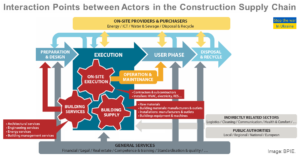
Barriers to Achieving Sustainable Construction Project Procurement in the Private Sector
Sustainable procurement management (SPM) as an approach to integrating sustainability into construction projects that takes into account the social, ecological, and economic consequences of procurement decisions. This study recognizes several challenges that obstruct the effective interaction between stakeholders in a ...
Posted on 14/04/22

Life Cycle Assessment of Building Materials for a Single-family House in Sweden
This study demonstrates the environmental impact of building materials from production and construction, including transport, replacement and deconstruction, for a single-family house in Sweden. It focused on building materials, materials transport, replacement of essential construction materials, and the environmenta ...
Posted on 12/04/22
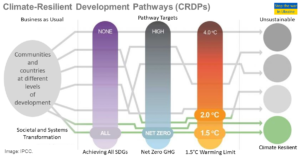
Climate Change 2022: Mitigation of Climate Change – Summary for Policymakers
Under 3.2 °C warming, 49% of insects, 44% of plants and 26% of vertebrates are at great risk of extinction. Best-case scenarios lead to a median range of 2.9–3.2°C in 2100 for current policies and 2.4–2.9°C in 2100 for 2030 pledges. If the targets were promptly and fully implemented, some estimate this could bring te ...
Posted on 10/04/22
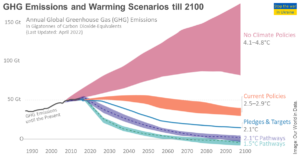
Climate Change 2022 – Mitigation of Climate Change
The world will warm by 3.2°C this century even if all the policies to cut carbon that governments have so far adopted were fully implemented. The high overshoot will increase climate risks for vulnerable regions and societies, causing unprecedented heatwaves, terrifying storms, and widespread water shortages and irrev ...
Posted on 09/04/22

Determining the Sustainability Factors and Performance of a Tourism Destination from the Stakeholders’ Perspective
The development and construction of sustainable tourism destinations ensure that the long-term quality performance of their environment and community life will be sustained. Sustainability is key to managing and maintaining the image and competitiveness of tourism destinations. This study focuses on the future environm ...
Posted on 07/04/22
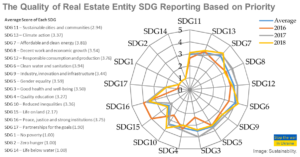
The Involvement of Real Estate Companies in Sustainable Development—An Analysis from the SDGs Reporting Perspective
Most real estate entities lack the strategy, culture and tools to realize their professed sustainability aspirations. They present their intentions mostly qualitatively and report few quantitative key performance indicators (KPIs) that reveal the degree of achieving such priority Sustainable Development Goals (SDGs) a ...
Posted on 31/03/22
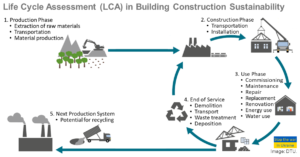
A Methodological Framework for Life Cycle Sustainability Assessment of Construction Projects Incorporating TBL and Decoupling Principles
In construction projects, integration of the three social, economic, and environmental aspects of the triple bottom line (TBL) principle is challenging. Green building rating schemes, such as LEED and BREEAM, fail to fully consider the projects' life cycle sustainability. This study presents a sustainable constructio ...
Posted on 29/03/22
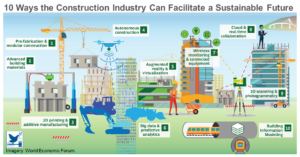
The Critical Role of the Construction Industry in Achieving the Sustainable Development Goals (SDGs): Delivering Projects for the Common Good
The construction industry is crucial in our efforts to achieve the UN Sustainable Development Goals (SDGs), which call for significant investment in sustainable infrastructure. Governments across the world use construction as the principal means for the development of sustainability policies and regulations. While th ...
Posted on 26/03/22
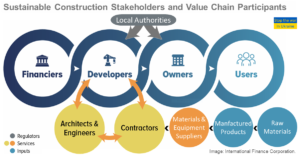
Construction Industry Value Chain
The global construction industry is the world’s largest consumer of raw materials. Construction accounts for 25%–40% of total carbon emissions globally. Companies across all sectors of the construction value chain are embedding sustainability into their operations and products, developing innovative green products, a ...
Posted on 24/03/22
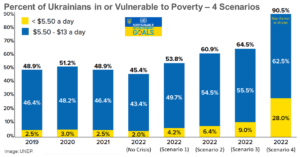
The Development Impact of the War in Ukraine: Initial Projections
The United Nations Development Programme (UNDP) says that the war is demolishing over two decades of economic progress. It reports that at least $100 billion of infrastructure, buildings, roads, bridges, hospitals, schools, and other built assets have already been destroyed by the war. The UNDP says that the impact o ...
Posted on 23/03/22
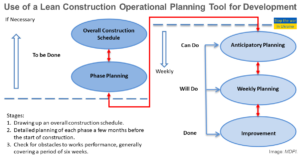
Lean Construction Concept Used to Develop Infrastructure Facilities for Tourism Clusters
Lean construction increases the efficiency of developing infrastructure facilities for tourism destinations. This study proposes the methodological approach to the implementation of megaprojects of tourism clusters based on the lean construction concept. It is to serve as the basis for organizing and planning developme ...
Posted on 22/03/22

An Architecture Guide to the UN 17 Sustainable Development Goals Volume 2
Architecture and architects play a major role in developing sustainable cities and the built environment to achieve the 17 UN Sustainable Development Goals (SDGs). This extensive collection of architectural projects across the world illustrates how architecture and architects can contribute to each of the SDGs. The 8 ...
Posted on 21/03/22
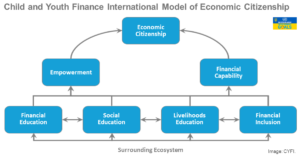
Greenpeace Sustainability Barometer 2021 – We Are Ready and Finally Want a Sustainable Future!
Today’s youth demands more commitment to sustainable development and more direct participation. Young people have the most confidence in NGOs advancing the sustainable development agenda, followed by science and citizen initiatives. For the younger generation, environmental destruction, species extinction, and climat ...
Posted on 19/03/22

Citizen Participation: Linking Government Efforts, Actual Participation, and Trust in Local Politicians
Citizen participation is key for effective and successful local government. Without participation, local government initiatives have a limited effect on improving trust in local politics and politicians, resulting in much more challenging policy implementation. Without the effective involvement of citizens in local g ...
Posted on 17/03/22

